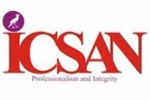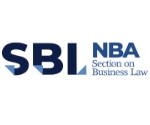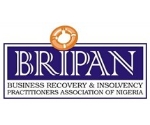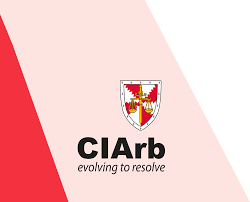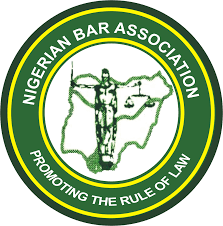Intellectual Property Protection in Nigeria: A Complete Guide For Foreign Businesses
Nigeria, a fast-developing economy with a diverse market, is an attractive destination for international businesses seeking growth opportunities. International businesses desirous of entering into Nigeria that make use of intellectual property such as have an already recognized brand names, slogans and logos or are into invention of new products must understand the local laws on intellectual property (IP) rights, this would enable them to safeguard their innovations and brand assets.
In this article, we delve into the intellectual property landscape in Nigeria, offering detailed insights and guidance on protecting trademarks, patents, designs, and copyrights for foreign businesses. We would begin by defining the various aspects of IP rights.
Definitions:
Trademark: A Trademark is a symbol, sign or words that differentiates the products and services of one business from that of another.
Patent: This is the exclusive right to the use of an invented product or item by the inventor. It prevents third parties from the commercial exploitation of an invention for a certain period.
Industrial Design: This is the ornamental or aesthetic aspect of an article. The design may consist of three-dimensional features, such as the shape of an article, or two-dimensional features, such as patterns, lines or colour.
Industrial Designs are applied to a wide variety of products of industry and handicrafts such as technical and medical instruments, watches, jewelry, housewares, electrical appliances, vehicles, architectural structures, textile designs, leisure goods and other luxury items. Industrial
Copyright: This is the exclusive right granted by a statute to an author (i.e., an artist, writer, publisher, musician, performer, photographer, architect, film maker, and sculptor) for the exclusive use and commercial exploitation for a particular duration as set by law. this duration varies in Nigeria depending on the nature of the copyright.
Intellectual Property Protection
Trademarks:
Trademark protection is crucial for establishing and maintaining a distinct brand identity. In Nigeria, the primary legislation governing trademarks is the Trademarks Act Cap T13 Laws of the Federation (LFN) 2004.
Below are the steps international businesses must follow for their trademark registration.
Application for Registration
- An application should be made in the prescribed form to the Nigerian Trademarks Registry. The Trademark Registry oversees the registration of trademarks. International businesses should initiate the registration process to secure exclusive rights to their marks.
- It is equally essential to conduct a comprehensive trademark search to ensure that the proposed mark does not conflict with an already existing mark which has been registered.
Classification of Trademark
Nigeria follows the Nice Classification system for goods and services.
The Nice Classification (NCL), established by the Nice Agreement (1957), is an international classification of goods and services applied for the registration of marks. A new edition is published every five years and, since 2013, a new version of each edition is published annually.
It is important for international businesses to be abreast of these changes.
Renewal and Maintenance
Trademark registrations in Nigeria are valid for an initial period of 7 years, with the possibility of renewal. Businesses would be advised to actively manage and renew their trademarks to maintain protection.
Patents:
For companies with innovative products or processes, securing patent protection is vital. The Patents and Designs Act is the key legislation governing patents in Nigeria. Here’s a guide for businesses:

Application Process:
- To protect inventions, international businesses must file a patent application with the Trademarks, Design and Patent Registry office at the Ministry of Trade and Investments, Abuja. In 2023, a mobile application was introduced to enable IP owners file applications from their phones and the comfort of homes and offices.
- Nigeria operates on a “first-to-file” system, emphasizing the importance of promptly filing applications to secure exclusive rights.
Duration of Protection
- Patents in Nigeria are protected for 20 years from the filing date. After this period, the invention enters the public domain.
- Businesses should maintain accurate records of their patents and consider strategies for exploiting their inventions within the protection period.
Design:
The patents and designs Act also serves as the key legislation for protection of Designs in Nigeria. The process is as follows:
Application Process
- Conduct availability search for design
- Obtain the requisite application form.
- Include a statement of novelty specifying features of the design for which novelty is claimed.
- Submit specimen or representation including the graphic or photographic representation of design.
- Submit a power of attorney /authorization of agent.
- Certificate of design is issued after the application has been processed.
Duration of Protection
Registration of industrial designs lasts for 5 years which is renewable twice for an additional period of 5 years per renewal making it a total of 15 years.
Copyright:
The Copyright Act governs intellectual property protection for literary, artistic, and musical works, as well as films, sound recordings, and broadcasts.
Below is a guide for copyright protection:
Automatic Protection:
- Copyright protection is automatic upon the creation of a work. However, registration with the Nigerian Copyright Commission provides additional benefits and evidence of ownership.
Documentation and Registration:
- While registration is not mandatory, maintaining proper documentation of copyrighted works is crucial. Registration can serve as valuable evidence in legal proceedings.
Enforcement of Intellectual Property Rights:
Ensuring the effectiveness of IP protection requires robust enforcement mechanisms. International businesses should be aware of the following:
Civil and Criminal Remedies
- Nigeria’s legal system provides both civil and criminal remedies for IP infringement. These include injunctions, damages, and, in severe cases, imprisonment.
Active Monitoring
- Regular monitoring of the market is essential to identify and address any instances of infringement promptly. Proactive measures can prevent potential damage to an international business’s intellectual property assets.
The Importance of Local Representation:
Navigating the nuances of Nigerian intellectual property laws can be complex. International businesses are advised to engage local legal representation to ensure compliance and receive tailored guidance in line with applicable regulations at the time.
Conclusion
As international businesses expand into Nigeria, safeguarding intellectual property becomes a strategic imperative.
The comprehensive protection of trademarks, patents, and copyrights involves understanding the nuances of Nigerian IP laws, active management of IP portfolios, and strategic enforcement measures.
By adhering to these guidelines and seeking local expertise, businesses can navigate the Nigerian intellectual property landscape with confidence, securing their innovations and brand assets for sustainable success in this dynamic market.
Berkeley Legal is a dedicated leading full-service top business law firm in Lagos, Nigeria. We provide comprehensive and sophisticated range of specialized and personalized legal services that are designed to meet the various needs of a highly diversified local and international businesses.
If you would like to know more about protecting intellectual property rights in Nigeria, please contact info@berkeleylp.com
The information provided in this article is for general informational purposes only and does not constitute legal advice.



